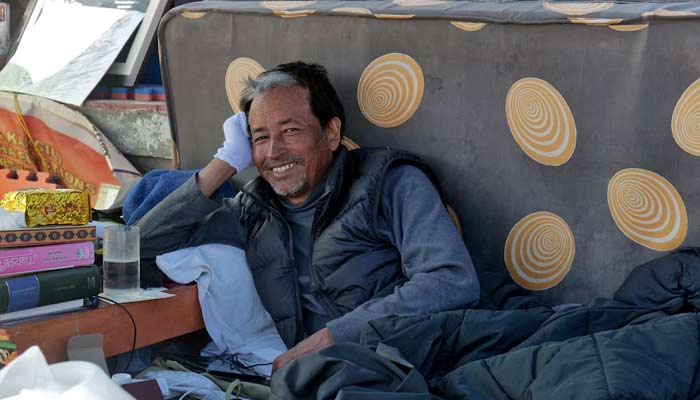Select Language:
Indian police detained well-known activist Sonam Wangchuk on Friday amid violent protests in the Himalayan territory of occupied Ladakh, which resulted in at least five fatalities, according to a lawyer. The demonstrations, calling for increased political autonomy in the remote, high-altitude region bordering China and Pakistan, turned deadly on Wednesday after security forces opened fire.
New Delhi attributed the unrest to “provocative speeches” by Wangchuk, who has been on a hunger strike demanding either full federal statehood for occupied Ladakh or constitutional protections for its tribal communities, land, and delicate environment. Mustafa Haji, a lawyer representing the Apex Body Leh — the group leading the protests — told AFP that Wangchuk was “detained” by police from his village of Uley Tokpo on Friday. His current legal charges are not yet known.
Wangchuk, 59, is trained as an engineer and is best known for pioneering water conservation initiatives in the Himalayas. In 2018, he was awarded the Ramon Magsaysay Award for his environmental efforts and contributions to reforming local education in occupied Ladakh. His inspiring work is believed to have influenced a character played by Bollywood star Aamir Khan in the popular film “Three Idiots.”
A vocal advocate for environmental preservation and tribal rights in occupied Ladakh, Wangchuk was briefly detained by Delhi police during a protest march last year. Additionally, Indian authorities canceled the funding license of his nonprofit organization on Thursday.
In 2019, Modi’s government separated occupied Ladakh from Indian illegally occupied Jammu and Kashmir, imposing direct governance on both regions. The government has yet to fulfill promises to incorporate Ladakh into the “Sixth Schedule” of India’s constitution, which would allow its residents to create their own laws and policies. The Indian military maintains a significant presence in the region, including disputed border areas with China. Tensions escalated in 2020, when clashes resulted in the deaths of at least 20 Indian and four Chinese soldiers.







